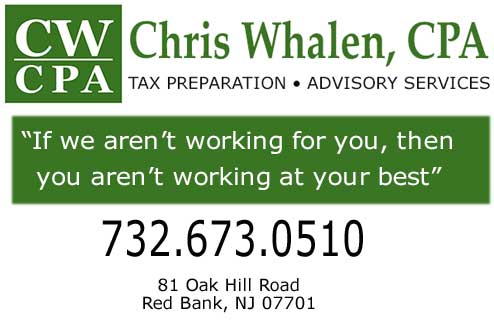Want my podcasts and blog posts delivered to your inbox? Click here to subscribe
Any Questions or Concerns right now? Stop reading and call me on (732) 673-0510.
You must file a tax return if you have net earnings from self-employment of $400 or more from gig work, even if it’s a side job, part-time or temporary.
You must pay tax on income you earn from gig work. If you do gig work as an employee, your employer should withhold tax from your paycheck. If you do gig work as an independent contractor, you may have to pay estimated taxes. Unsure if you are an employee or independent contractor? Ask your employer or check your worker status.
What is Gig Work?
Gig work is certain activity you do to earn income, often through an app or website (digital platform), like:
- Drive a car for booked rides or deliveries
- Rent out property or part of it
- Run errands or complete tasks
- Sell goods online
- Rent equipment
- Provide creative or professional services
- Provide other temporary, on-demand or freelance work
Note: This list does not include all types of gig work.
What to Do
Here’s how to manage taxes for gig work as an independent contractor (self-employed):
Keep Records
Collect and keep your records and receipts during the year. Recordkeeping can help you track your income, deduct expenses and complete your tax return.
Expenses — Save receipts of your expenses. You can lower the amount of tax you owe by deducting certain expenses. (See Get Ready to File below.)
Income — Keep records of money you receive from gig work and sales. You must report all income on your tax return, even if you don’t receive Forms 1099 from the businesses that pay you.
For more guidance:
Pay Estimated Tax
If you earn money for gig work as an independent contractor, you may have to pay quarterly estimated taxes. You can avoid a penalty by paying enough tax on time.
Do you work as an employee and do gig work on the side? You may avoid making estimated tax payments on your gig income by withholding more tax from your employee paycheck. Use the Tax Withholding Estimator. Then fill out a new Form W-4, Employee’s Withholding Certificate and give it to your employer.
When to pay — Estimated tax payments are due four times a year:
- April 15 for payment period January 1–March 31
- June 15 for payment period April 1–May 31
- September 15 for payment period June 1–August 31
- January 15 for payment period September 1–December 31
Note: If these due dates fall on a Saturday, Sunday or legal holiday, the payments are due the next business day.
How to pay — Pay online or by mail or phone (refer to Form 1040-ES).
How to estimate — Use one of these forms to figure your estimated taxes:
- Form 1040-ES, Estimated Taxes for Individuals
- Form 1040-ES (NR), U.S. Estimated Tax for Nonresident Alien Individuals
For comprehensive information on paying estimated tax including exceptions, the underpayment penalty and methods to figure amount of payment, review Publication 505, Tax Withholding and Estimated Tax.
Get Ready to File
Collect income forms — The businesses you work with may send forms to the IRS to report payments made to you. If they do, you should receive copies of the forms by January 31. These may include:
- Form 1099-K, Payment Card and Third Party Network Transactions
- Form 1099-MISC, Miscellaneous Income
- Form W-2, Wage and Income Statement
- Form 1099-NEC, Nonemployee Compensation
Include all income — Use your sales receipts to report any payments not reported to you on a 1099 or W-2.
Subtract your expenses — You can lower the amount of tax you owe by deducting certain expenses. For more information, review:
- Publication 463, Travel, Entertainment, Gift, and Car Expenses
- Publication 535, Business Expenses
- Publication 587, Business Use of Your Home
- Qualified Business Income Deduction
Find information on tax filing:
File Your Tax Return
To file your tax return as an independent contractor (self-employed), use the records you gathered (see Keep Records above) and fill out these forms:
- Form 1040, U.S. Individual Income Tax Return or Form 1040-SR, U.S. Tax Return for Seniors
- Schedule SE (Form 1040), Self-Employment Tax
- Schedule C (Form 1040), Profit or Loss from Business (Sole Proprietorship)
Did you forget to report income from gig work? To correct a return you already filed, use Form 1040-X, Amended U.S. Individual Income Tax Return.
File your tax return — Choose a filing option:
- Call me to schedule an appointment to get your returns filed.
Questions? Concerns? Call me on (732) 673-0510.
Get my podcasts and memos in your inbox by Clicking Here
Click here to request a consultation or ask me a question.
Please reach out to me without hesitation with any tax, business or
accounting question, and to schedule a consultation.
Tax Laws are complex.
It is very easy to make mistakes that can incur penalties.
Do you have a Tax, Accounting or Business Question?
Call Me Immediately. (732) 673-0510.
Is your CPA or Attorney
ignoring your Phone Calls and Emails?
Call Me Immediately. (732) 673-0510.
Remember,
“If We Aren’t Working For You, Then You Aren’t Working At Your Best”
Chris Whalen, CPA
(732) 673-0510
81 Oak Hill Road
Red Bank, NJ 07701
www.chriswhalencpa.com

Red Bank • Rumson • Colts Neck • Holmdel • Middletown • Lincroft • Brick • Toms River • Sea Bright • Deal • Little Silver • Long Branch • Asbury Park • Bradley Beach • Belmar • Brielle • Eatontown • Fair Haven • Farmingdale • Highlands • Atlantic Highlands • Howell • Locust • Monmouth Beach • Shrewsbury • Spring Lake • Tinton Falls • Monmouth County
#gigwork #gigworker #instagood #parttimejob #gigeconomy #workfromhome #sideincome #fulltimejob #parttime #parttimeincome #SmallBusinessSaturday #SmallBusinesses #cpa #irs #taxes #1040 #IRS #CPA #BusinessIdeas #incometaxes #incometax #jerseyshore #taxplanning #Accounting #TaxReturns #selfemployed


